
Find A Professional
More Items From Ergsy search
-

What causes cold sores?
Relevance: 100%
-

What are the symptoms of a cold sore?
Relevance: 89%
-
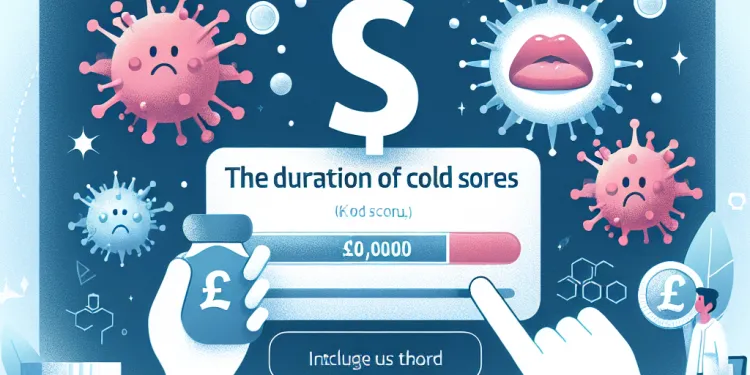
How long do cold sores last?
Relevance: 86%
-

How are cold sores transmitted?
Relevance: 82%
-
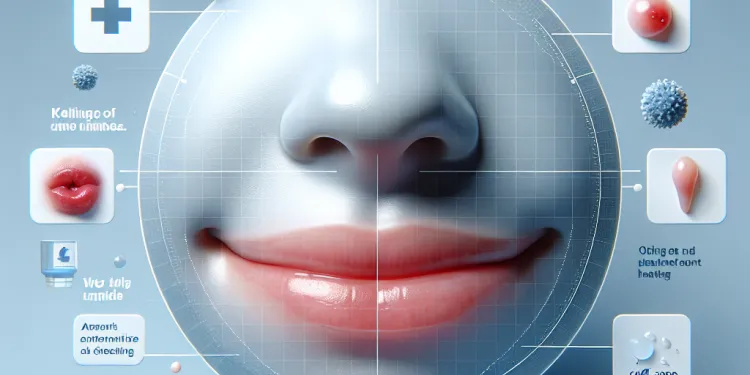
What are Cold Sores?
Relevance: 78%
-

What triggers a cold sore outbreak?
Relevance: 77%
-

Is there a cure for cold sores?
Relevance: 76%
-

Are cold sores contagious?
Relevance: 75%
-

How can I prevent cold sores?
Relevance: 65%
-

Can cold weather cause a cold?
Relevance: 63%
-

Is it safe to take cold showers during a heatwave?
Relevance: 54%
-

Honey 'as good as antiviral creams' for cold sores | NHS Behind the Headlines
Relevance: 53%
-

How long does a common cold typically last?
Relevance: 49%
-
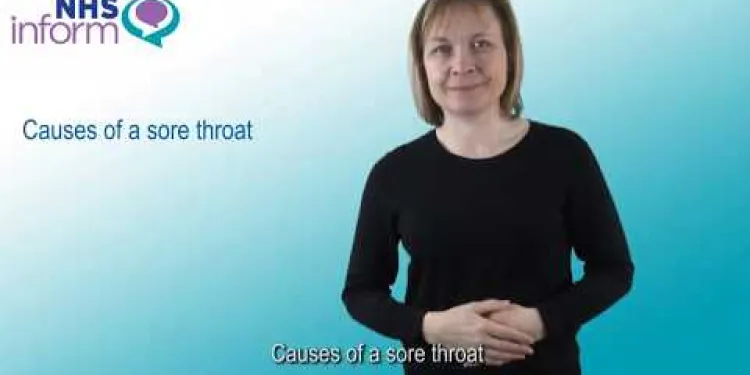
Causes of a sore throat
Relevance: 45%
-
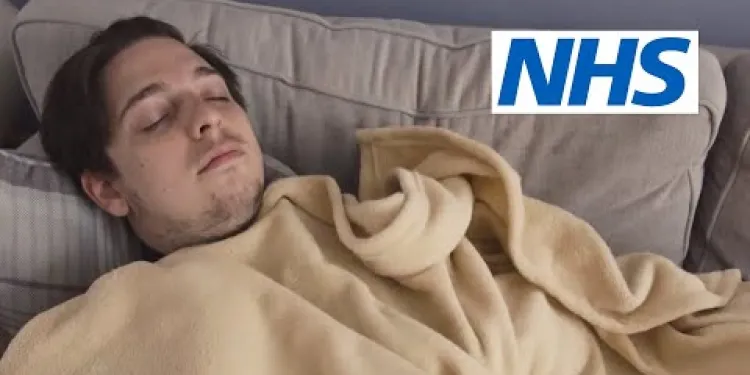
How to treat a cold | NHS
Relevance: 45%
-
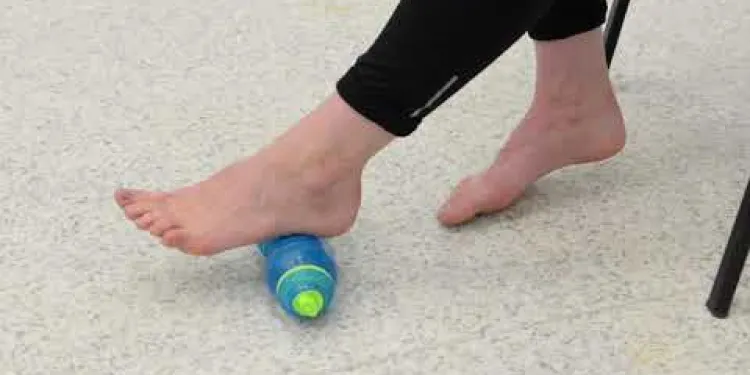
Plantar Fascia Cold Therapy
Relevance: 44%
-
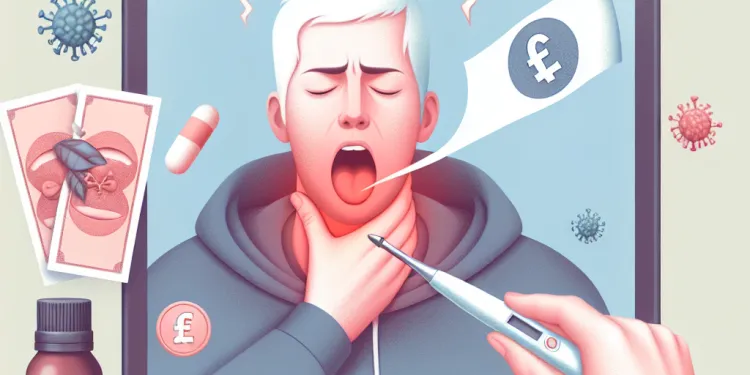
What is the best way to treat a sore throat from a cold?
Relevance: 43%
-

What are the common symptoms of a cold?
Relevance: 41%
-
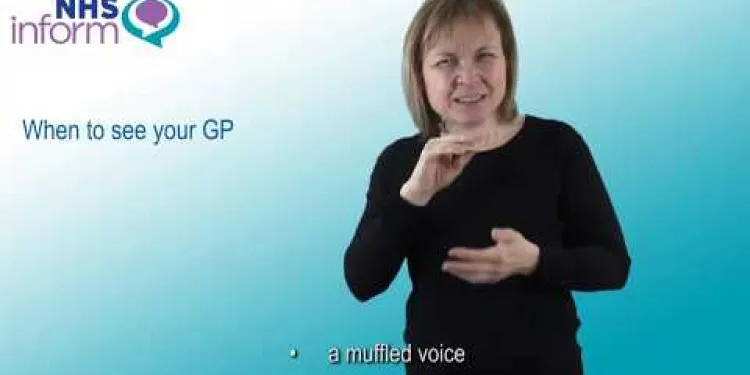
Treating a sore throat
Relevance: 40%
-
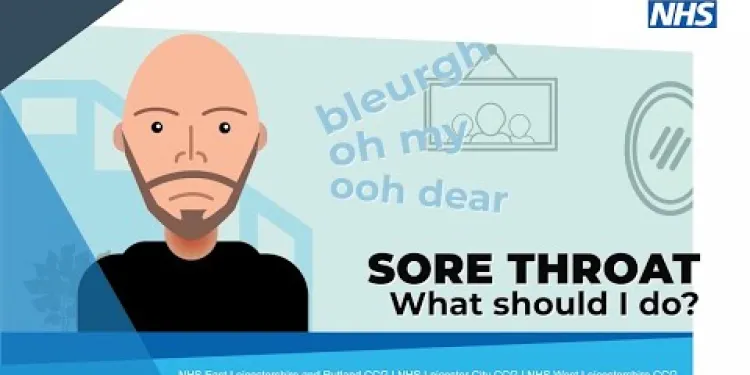
Sore throat: what should I do?
Relevance: 39%
-

Is there a way to cure a cold quickly?
Relevance: 39%
-
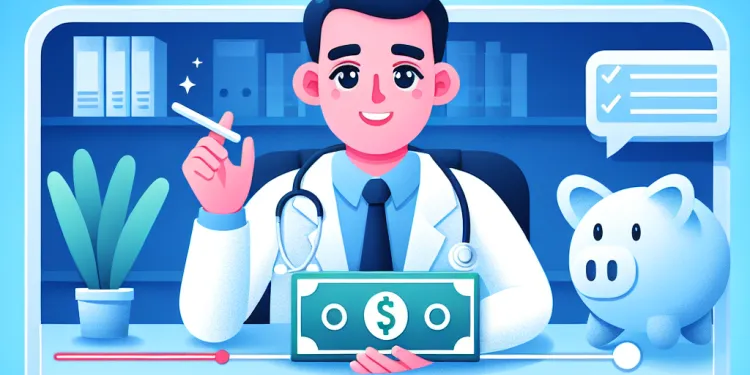
Should I see a doctor for a cold?
Relevance: 38%
-

How to Treat a Common Cold
Relevance: 34%
-
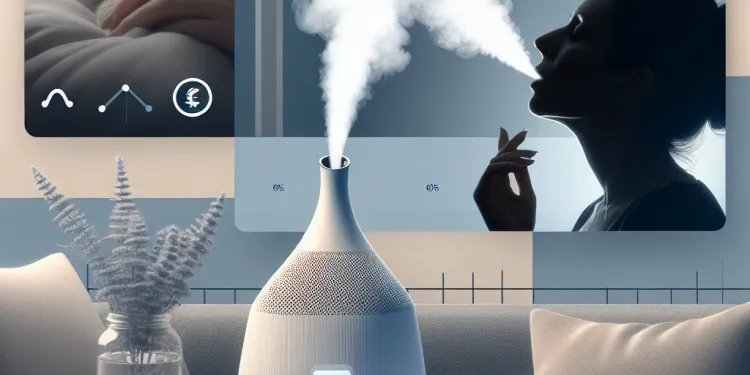
Can I use a humidifier to help with my cold symptoms?
Relevance: 33%
-
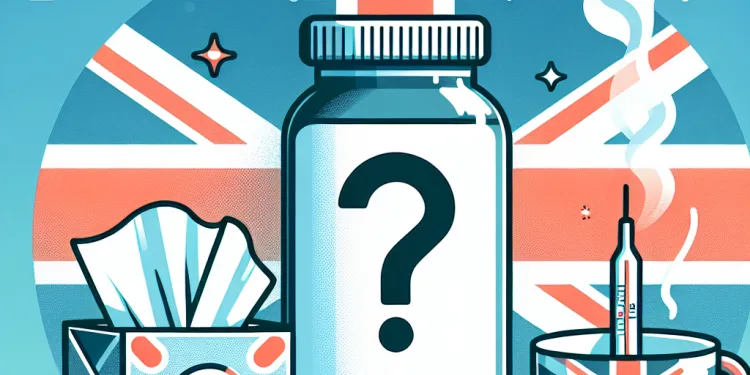
Can I take antibiotics for a cold?
Relevance: 32%
-

Can I receive the Warm Home Discount and Cold Weather Payment?
Relevance: 30%
-

Can children take the same cold medications as adults?
Relevance: 30%
-
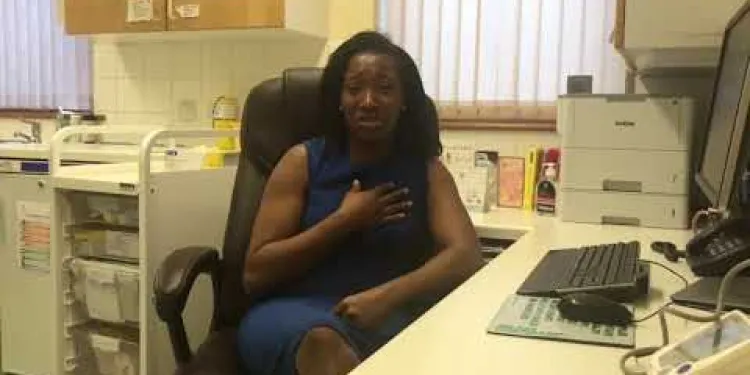
What should you do if you have a cough or cold?
Relevance: 29%
-

Is it okay to use ice packs or cold showers to cool down?
Relevance: 29%
-
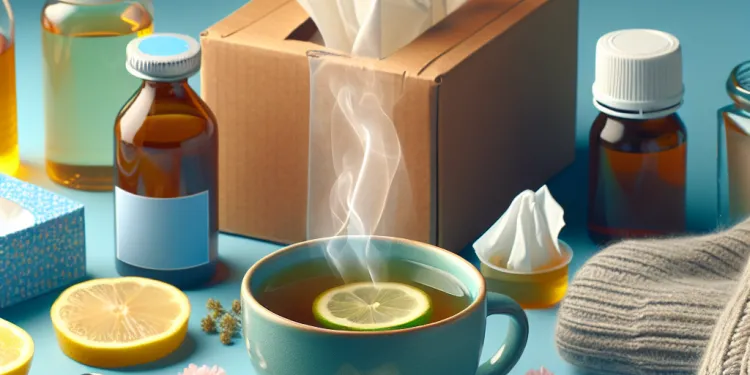
How can I treat a cold at home?
Relevance: 28%
-
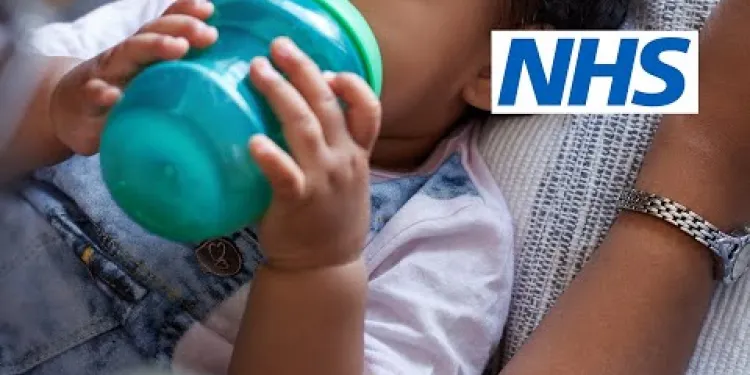
How do I treat my child's cold? (9 - 30 months) | NHS
Relevance: 26%
-

Is impetigo contagious?
Relevance: 26%
-

Is it safe to exercise with a cold?
Relevance: 25%
-
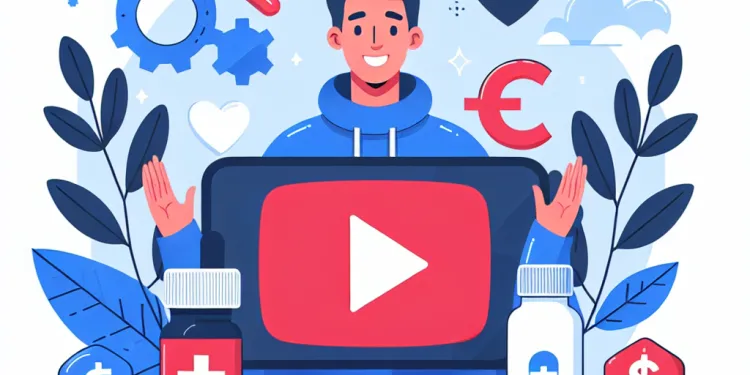
Is Vitamin C effective against colds?
Relevance: 23%
-
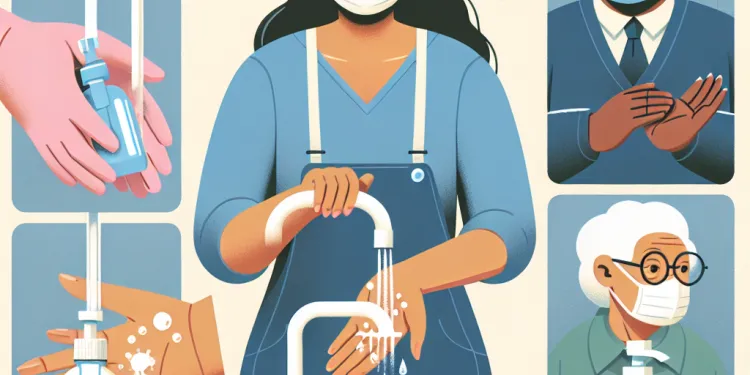
How can I prevent spreading my cold to others?
Relevance: 22%
-
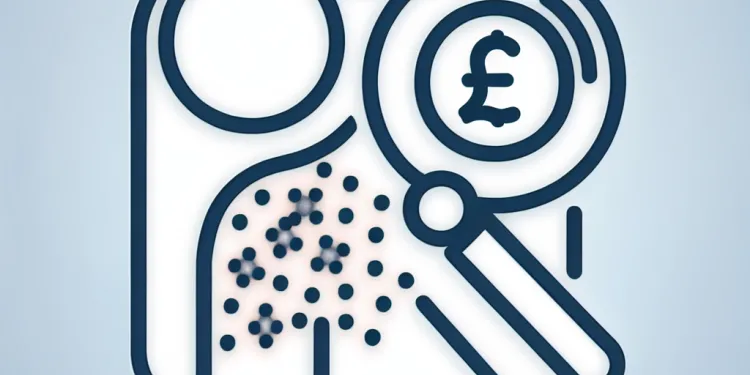
Can impetigo spread to other parts of my body?
Relevance: 22%
-

How can I tell if I have impetigo?
Relevance: 21%
-
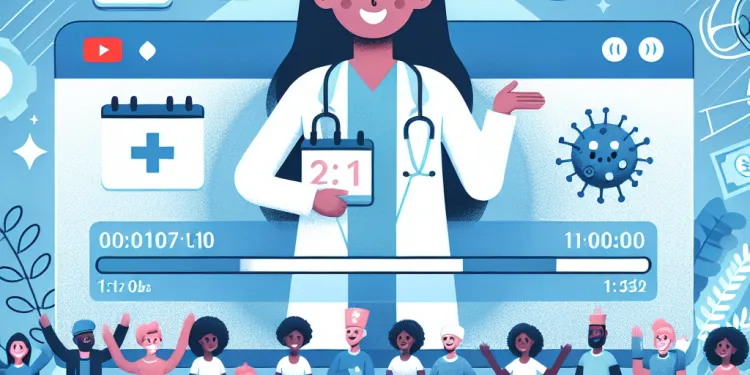
How long is a person with measles contagious?
Relevance: 20%
-

Is nettle rash contagious?
Relevance: 15%
-

Can adults get impetigo?
Relevance: 15%
Are Cold Sores Contagious?
Cold sores, also known as fever blisters, are a common viral infection caused by the herpes simplex virus (HSV). They typically appear as small, fluid-filled blisters on or around the lips and can be both unsightly and uncomfortable. A common concern among those affected is whether cold sores are contagious, and if so, to what extent.
Understanding the Herpes Simplex Virus
The herpes simplex virus is responsible for cold sores and comes in two types: HSV-1 and HSV-2. Cold sores are primarily caused by HSV-1, although HSV-2, which typically causes genital herpes, can also lead to cold sores in some cases. Once a person is infected with the virus, it remains in the body for life, residing in nerve cells and occasionally reactivating to cause symptoms.
How Cold Sores Spread
Cold sores are highly contagious, particularly when the blisters are present and oozing. The virus is spread through direct skin-to-skin contact, such as kissing, or by sharing items like utensils, lip balm, or towels with an infected person. It's important to note that the virus can still spread even when blisters are not visible, during a period known as asymptomatic shedding.
Preventing Transmission
While it can be challenging to prevent the spread of the herpes simplex virus entirely, there are steps that can be taken to reduce the risk. During an active outbreak, individuals should avoid close physical contact with others, especially intimate contacts. It is also advisable to refrain from sharing personal items that may have come into contact with the virus. Regular hand washing and maintaining good personal hygiene are effective in minimizing the risk of transmission.
Treatment and Management
Although there is no cure for the herpes simplex virus, various treatments can help manage the symptoms and reduce the frequency of outbreaks. Antiviral medications, such as aciclovir or valaciclovir, can be prescribed to shorten the duration of an outbreak and reduce the likelihood of transmission. Additionally, over-the-counter creams and ointments can provide symptomatic relief.
Conclusion
In conclusion, cold sores are indeed contagious, primarily when blisters are visible. Understanding how the herpes simplex virus spreads and adopting preventive measures can help manage and reduce the risk of transmission. While living with the virus can be challenging, treatment options are available to help control symptoms and allow those affected to maintain a good quality of life.
Are Cold Sores Catching?
Cold sores are sometimes called fever blisters. They are caused by a virus called herpes simplex virus (HSV). Cold sores look like small blisters with liquid in them. They show up on or around the lips and can hurt. People often worry about whether they can pass cold sores to others.
About the Herpes Simplex Virus
A virus called herpes simplex causes cold sores. There are two types: HSV-1 and HSV-2. Cold sores are mostly caused by HSV-1. Some people might get cold sores from HSV-2, which often causes sores in the private parts. Once you catch the virus, it stays in your body forever, hiding in nerve cells and sometimes causing cold sores again.
How Cold Sores Pass from Person to Person
Cold sores can spread easily, especially when you see blisters leaking. The virus spreads by touching skin, like kissing, or sharing things like spoons, lip balm, or towels with someone who has a cold sore. Even if you don’t see blisters, the virus can still spread. This is called silent spreading.
How to Stop Cold Sores from Spreading
It can be hard to stop the herpes virus from spreading, but there are things you can do to make it less likely. If you have cold sores, don’t touch other people closely when the blisters are there. Do not share items that touched the blisters. Wash your hands often and keep clean to help stop the virus from spreading.
How to Treat and Manage Cold Sores
There is no way to completely get rid of the herpes virus, but there are treatments to help you feel better. Medicines that fight viruses, like aciclovir or valaciclovir, can make the cold sores go away faster and help stop the virus from spreading. You can also use creams from the store to help feel better.
Summary
To sum up, cold sores can spread, especially when you see blisters. Knowing how the herpes virus spreads and taking care can help stop it from passing to others. Living with the virus can be hard, but treatments can help manage it so you can feel better.
Frequently Asked Questions
Are cold sores contagious?
Yes, cold sores are highly contagious, especially when the blisters are open and oozing.
How are cold sores transmitted?
Cold sores are primarily spread through direct contact with the sore or the saliva of an infected person, such as through kissing or sharing utensils.
Can you get cold sores from someone who doesn't have visible symptoms?
Yes, it's possible to contract the virus from someone who is asymptomatic or in the prodromal stage (tingling feeling) before a sore appears.
Is it safe to kiss someone with a cold sore?
No, kissing someone with a cold sore can easily spread the virus and should be avoided until the sore is fully healed.
Can children get cold sores?
Yes, children can contract cold sores, usually from close contact with infected adults.
Are cold sores contagious only when they are visible?
While they are most contagious when visible, the virus can still be spread even when sores are not present.
Can you prevent cold sores from spreading?
To prevent spreading, avoid direct contact with sores, do not share personal items, and practice good hygiene.
Is there a vaccine for preventing cold sores?
Currently, there is no vaccine available to prevent cold sores caused by the herpes simplex virus.
Can you spread cold sores through objects?
Yes, the virus can survive on objects like towels, lip balm, and utensils, though less likely than direct contact.
How long are cold sores contagious?
Cold sores are most contagious from the initial tingling stage until they are fully healed, typically about 7 to 10 days.
Can cold sores spread to other parts of your body?
Yes, it's possible to spread the virus to other areas, like your eyes or genitals, through touch, known as autoinoculation.
Can antiviral medications reduce transmission risk?
Yes, antiviral medications can reduce the duration and frequency of outbreaks and lower the risk of transmission.
Is it possible for cold sores to be dormant?
Yes, the herpes simplex virus can remain dormant in the body and reactivate later, often due to stress or illness.
Can you get cold sores from sharing a drink?
It's possible to contract the virus by sharing drinks if an infected person has used the glass or straw.
What factors can trigger a cold sore outbreak?
Triggers can include stress, illness, sun exposure, and hormonal changes.
Do cold sores only appear on the lips?
Cold sores most commonly appear on the lips but can also occur around the mouth and nose.
Should I avoid close contact if I have a cold sore?
Yes, it's advisable to avoid close contact with others to prevent spreading the virus.
Can cold sores be cured completely?
There is no cure for the virus that causes cold sores, but symptoms can be managed with treatment.
Can I still go to work or school with a cold sore?
Yes, you can, but practice good hygiene and avoid direct contact to prevent spreading the virus.
How can I protect others if I have a cold sore?
Avoid kissing, don't share personal items, wash hands frequently, and consider antiviral medication.
Can you catch cold sores from someone else?
Yes, cold sores can be caught from other people. They are spread by a virus called herpes simplex. Be careful if someone has a cold sore.
To keep safe, do not kiss them and do not share things like cups, towels, or lip balm with them.
Yes, cold sores spread easily. This happens most when the blisters are open and leaking.
How do cold sores spread?
Cold sores are a type of sore you get on your mouth or face. They are caused by a virus. When you have a cold sore, it can spread to other people.
Here is how cold sores can spread:
- Touching: If you touch a cold sore and then touch someone else, they might get a cold sore too.
- Kissing: Kissing someone when you have a cold sore can spread the virus to them.
- Sharing things: If you share cups, straws, or towels with someone who has a cold sore, the virus can spread.
Tip: If you have a cold sore, try to keep it clean and do not touch it. Wash your hands often. This can help stop spreading it to others.
Cold sores spread mostly when you touch a sore or the spit from someone who has them. This can happen when you kiss or use the same forks or spoons.
Is it possible to catch cold sores from someone who looks fine?
Yes, you can catch cold sores from someone even if they don’t seem to have them. The cold sore virus is sneaky and can spread even when you can't see any sores.
To stay safe:
- Try not to share cups, forks, or spoons with others.
- Avoid kissing someone with a cold sore.
Picture books or videos can help explain this better. Let an adult know if you have questions.
Yes, you can catch the virus from someone who does not look sick, or just before they get a sore. They might feel a tingle before the sore shows up.
Is it safe to kiss someone who has a cold sore?
A cold sore is a small sore on the lips or around the mouth. It can spread easily from one person to another. If you kiss someone with a cold sore, you might get one too.
What to do: It's best to wait until the cold sore is gone before kissing.
Helpful tips: You can ask a grown-up or a doctor for advice if you're not sure what to do. Remember, it's okay to ask questions!
No, do not kiss someone with a cold sore. Cold sores can spread easily. Wait until the sore is completely gone before kissing.
Can kids get cold sores?
Yes, kids can get cold sores.
Cold sores are small blisters that can appear on your lips and around your mouth.
If your child has a cold sore, it's important to:
- Make sure they don't touch it.
- Keep their hands clean.
- Teach them not to share cups or forks with others.
If you're worried about your child’s cold sore, talk to a doctor or nurse.
Helpful tools:
- Pictures can help explain what a cold sore is.
- An adult can help read and understand this information.
Yes, kids can get cold sores. This usually happens when they are close to grown-ups who have cold sores.
Can you catch cold sores only when you can see them?
Cold sores can spread even if you can't see them. They are contagious. It's best to be careful all the time.
- Don't share things like cups or lip balm.
- Avoid kissing someone with a cold sore.
- Wash your hands often.
These tips can help keep you safe.
The virus spreads more easily when you can see the sores, but it can still spread when there are no sores to see.
How can I stop cold sores from spreading?
To stop germs from spreading, do these things:
- Stay away from touching sores.
- Do not share things like towels or toothbrushes.
- Wash your hands often and keep clean.
Using pictures or videos can help you understand better. You can also ask someone to explain it to you if it's hard to understand.
Can a vaccine stop cold sores?
Right now, there is no shot to stop cold sores made by the herpes virus.
Can you spread cold sores with things?
Cold sores are little blisters on the skin. They can go from person to person. Can they spread by using the same things, like a cup or a towel?
If someone with a cold sore uses a cup, and then you use it right after, you might catch the cold sore germs.
Using your own things can help. Try using your own cup, towel, and toothbrush.
It’s good to wash your hands often.
Picture books or videos can help you understand better!
Yes, the virus can live on things like towels, lip balm, and forks and spoons, but it doesn't happen as much as touching someone who has it.
When Can You Spread Cold Sores?
Cold sores can spread easily when they first start to tingle. They can spread until they are all better. This usually takes about 7 to 10 days.
Can cold sores go to other parts of your body?
Yes, you can spread germs to places like your eyes or private parts by touching them. This is called autoinoculation.
Do antiviral medicines help stop the spread of viruses?
Yes, medicine can help you feel better faster when you have a virus. It can also make it happen less often and keep it from spreading to other people.
Can cold sores be asleep inside your body?
The herpes virus can hide in your body. It can come back again if you are stressed or sick.
Can you get cold sores from sharing a drink?
You can catch cold sores from sharing drinks. This is because cold sores are caused by a virus. The virus can spread from one person to another. It is better to have your own drink.
You can catch the virus if you share drinks. This can happen if a sick person used the same glass or straw.
What can cause cold sores to appear?
Sometimes, cold sores can pop up on your lips or around your mouth. Here are some things that might make them appear:
- Feeling Stressed: When you are worried or upset, cold sores might show up.
- Getting Sick: If you have a cold or the flu, cold sores can appear.
- Too Much Sun: Being in the sun a lot can cause cold sores.
- Getting Really Tired: When you don’t rest enough, it can trigger cold sores.
- Change in Weather: Cold and windy weather can make cold sores come out.
- Injuries to the Skin: If you hurt your mouth or lips, cold sores can appear.
Try to take care of yourself by resting, eating well, and staying calm. You can also ask an adult to help you use special creams or medicines to stop cold sores.
Things that can start problems are stress, feeling sick, too much sun, and changes in your body's hormones.
Do cold sores only show up on the lips?
No, cold sores can also show up in other places. They can be on the face, nose, or even inside the mouth. But they are most common on the lips.
Tips to help understand:
- Look at pictures: Seeing pictures of cold sores can help you know what they look like.
- Ask someone: Talk to a doctor or someone you trust if you have questions.
- Use tools: Use a dictionary to find out what words mean.
Cold sores show up most often on the lips. They can also be around the mouth and nose.
What should I do if I have a cold sore? Can I be near people?
If you have a cold sore, it's best to stay away from people. You can give the sore to others.
Here are some helpful tips:
- Don't kiss anyone.
- Don't share things like cups or forks.
- Wash your hands often.
If you are not sure, ask a doctor or nurse for help.
Yes, it is a good idea to stay away from others to stop the virus from spreading.
Can cold sores go away forever?
There is no way to make the virus that causes cold sores go away forever. But, medicine can help you feel better.
Can I go to work or school with a cold sore?
A cold sore is a small sore on your lip. It can be itchy or hurt.
You can still go to work or school with a cold sore. But remember:
- Do not touch your cold sore.
- Wash your hands often.
- Try not to share cups, spoons, or food.
Use lip balm to help your lips feel better.
Yes, you can, but make sure to stay clean and wash your hands. Try not to touch others so you do not spread germs.
How can I keep others safe if I have a cold sore?
If you have a cold sore, you can help others stay healthy:
- Try not to touch your cold sore.
- Don’t kiss anyone until it heals.
- Avoid sharing things like cups or towels.
- Wash your hands often with soap and water.
- If you sneeze or cough, cover your mouth with a tissue or your elbow.
If you need help remembering these steps, you could use:
- A reminder note on your phone.
- Sticky notes around your home.
- Ask someone you trust to help remind you.
Don't kiss, don't share your things, wash your hands a lot, and think about taking medicine to stop viruses.
Useful Links
- Ergsy carfully checks the information in the videos we provide here.
- Videos shown by Youtube after a video has completed, have NOT been reviewed by ERGSY.
- To view, click the arrow in centre of video.
- Most of the videos you find here will have subtitles and/or closed captions available.
- You may need to turn these on, and choose your preferred language.
- Go to the video you'd like to watch.
- If closed captions (CC) are available, settings will be visible on the bottom right of the video player.
- To turn on Captions, click settings .
- To turn off Captions, click settings again.
More Items From Ergsy search
-

What causes cold sores?
Relevance: 100%
-

What are the symptoms of a cold sore?
Relevance: 89%
-

How long do cold sores last?
Relevance: 86%
-

How are cold sores transmitted?
Relevance: 82%
-

What are Cold Sores?
Relevance: 78%
-

What triggers a cold sore outbreak?
Relevance: 77%
-

Is there a cure for cold sores?
Relevance: 76%
-

Are cold sores contagious?
Relevance: 75%
-

How can I prevent cold sores?
Relevance: 65%
-

Can cold weather cause a cold?
Relevance: 63%
-

Is it safe to take cold showers during a heatwave?
Relevance: 54%
-

Honey 'as good as antiviral creams' for cold sores | NHS Behind the Headlines
Relevance: 53%
-

How long does a common cold typically last?
Relevance: 49%
-

Causes of a sore throat
Relevance: 45%
-

How to treat a cold | NHS
Relevance: 45%
-

Plantar Fascia Cold Therapy
Relevance: 44%
-

What is the best way to treat a sore throat from a cold?
Relevance: 43%
-

What are the common symptoms of a cold?
Relevance: 41%
-

Treating a sore throat
Relevance: 40%
-

Sore throat: what should I do?
Relevance: 39%
-

Is there a way to cure a cold quickly?
Relevance: 39%
-

Should I see a doctor for a cold?
Relevance: 38%
-

How to Treat a Common Cold
Relevance: 34%
-

Can I use a humidifier to help with my cold symptoms?
Relevance: 33%
-

Can I take antibiotics for a cold?
Relevance: 32%
-

Can I receive the Warm Home Discount and Cold Weather Payment?
Relevance: 30%
-

Can children take the same cold medications as adults?
Relevance: 30%
-

What should you do if you have a cough or cold?
Relevance: 29%
-

Is it okay to use ice packs or cold showers to cool down?
Relevance: 29%
-

How can I treat a cold at home?
Relevance: 28%
-

How do I treat my child's cold? (9 - 30 months) | NHS
Relevance: 26%
-

Is impetigo contagious?
Relevance: 26%
-

Is it safe to exercise with a cold?
Relevance: 25%
-

Is Vitamin C effective against colds?
Relevance: 23%
-

How can I prevent spreading my cold to others?
Relevance: 22%
-

Can impetigo spread to other parts of my body?
Relevance: 22%
-

How can I tell if I have impetigo?
Relevance: 21%
-

How long is a person with measles contagious?
Relevance: 20%
-

Is nettle rash contagious?
Relevance: 15%
-

Can adults get impetigo?
Relevance: 15%